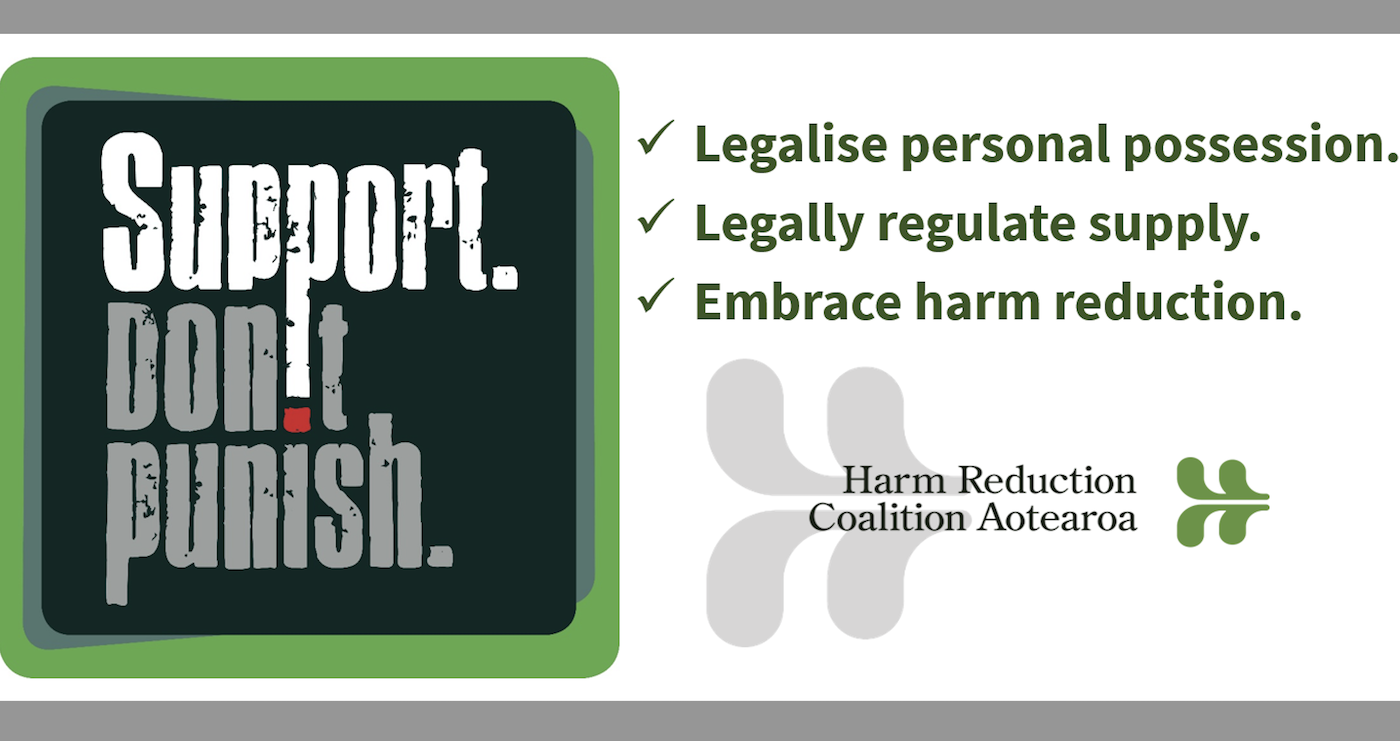June 26 is the annual “Support. Don’t Punish.” day—an impressive global initiative to promote harm reduction and drug policies that prioritize public health and human rights. The slogan rightly asserts that people who use drugs shouldn’t be punished and should instead receive support. But at second glance, it raises some telling questions.
It’s referring to people who use drugs; however, it’s overwhelmingly people who use prohibited drugs who get punished, stigmatized and excluded. People using legal substances, such as alcohol, caffeine and nicotine, may experience some stigma, but don’t get punished for possession (there are some important exceptions with nicotine).
The application of law enforcement for banned drugs is also highly selective. Enforcement targets people on low incomes, young people, Indigenous peoples and people of color—rarely do white people with privilege get punished for using drugs.
We must look at the elephant in the room: The driving force is prohibition.
Societies currently spend vast sums of public money punishing people for using illicit drugs. The United States alone has spent a staggering $640 billon. All this damaging effort wasted on prohibited drugs, when using state-approved drugs can be just as harmful, if not more so.
It’s impossible to rationalize why we might want to punish people just because they prefer to use different drugs, or to justify the world’s biased and deeply harmful enforcement efforts.
If we look beyond the bigoted desire to attack certain populations, some people might think punishment is justified on the basis that certain drug use—heroin and methamphetamine, say—inevitably leads to crime. But this isn’t true. The ridiculousness of this notion becomes apparent when you consider that pharmaceutical versions of these drugs are widely prescribed, with no association—popular or real—between prescribed use and crime, violence, homelessness or antisocial behavior. One study suggested that people prescribed stimulants were less likely to commit crime.
It’s not the pharmacological consequences of banned drugs, then, that create the perceived links with social problems. Instead, we must look at the elephant in the room: The driving force is prohibition.
Prohibition creates a lucrative underground market that incentivizes violence and related illicit activities. In an unlawful industry, there are no conventional ways to assert ownership, no employment tribunals and no legal pathways to resolve conflict.
Unfortunately, the popular narrative takes direct consequences of prohibition and conflates them with the much lower risks that would accompany drug use in normal circumstances.
Prohibition also massively amplifies drug-related harms. The Iron Law of Prohibition refers to logistical pressures that favor more compact (read: potent) substances in the supply. With no regulation or consumer protections, people don’t know the composition or dosage of what they’re consuming. And the threat of law enforcement impedes harm reduction and drives riskier drug-use practices.
Unfortunately, the popular narrative takes these direct consequences of prohibition and conflates them with the much lower risks that would accompany drug use in normal circumstances.
The enforcement of prohibition adds further devastating harms to the mix. These include police violence, mass incarceration with enormous suffering and family separations, and even, in some countries, executions.
Even without these factors, when people are targeted and arrested for drug possession, it seriously damages their life opportunities. A drug conviction can make it difficult to secure employment, insurance, loans, housing or educational opportunities.
Nobody should be punished over what they do with their own body. When bodily autonomy is a fundamental human right, punishing people over the drug they choose is a breach of human rights. Your body, your choice—and not a police matter.
The assertion that people who use drugs should not be punished, but supported, comes from a good place. It is also implied in many other campaigns and slogans, such as “help not handcuffs” and “treatment not prison.”
But such phrases carry risks. First, they might lead us to make a patronizing assumption that people who use drugs need help or support because they use drugs—when most drug use, of any kind, is not problematic.
The risk is that we forget why that support is needed.
It’s an assumption that reflects drug-war propaganda. Sure, people often use drugs as a means to mitigate or cope with difficulties they are already experiencing. And a minority certainly experience chaotic or addictive use. But most people use drugs just because they enjoy or appreciate the effects. The dominant discourse that people who use drugs need support per se leads to infantilization of drug users, removes agency, and could be used as leverage for coercive interventions.
There’s another, seemingly contradictory risk in how we interpret phrases like “Support. Don’t Punish.” Because there is truth in the notion that people who use prohibited drugs need support. The risk, however, is that we forget why that support is needed: overwhelmingly, because of the serious dangers posed by prohibition—not drugs in themselves.
The “Support. Don’t Punish.” campaign is valuable; we commend it and participate in it. The slogan, we should remember, is intended to be used all over the world—including in countries where calling explicitly for legalization might put people at risk.
But those of us who are in a position to say it openly should do so. And that’s why, for this day, we say, “Support Legalization. Don’t Punish.”
Image by Harm Reduction Coalition Aotearoa





